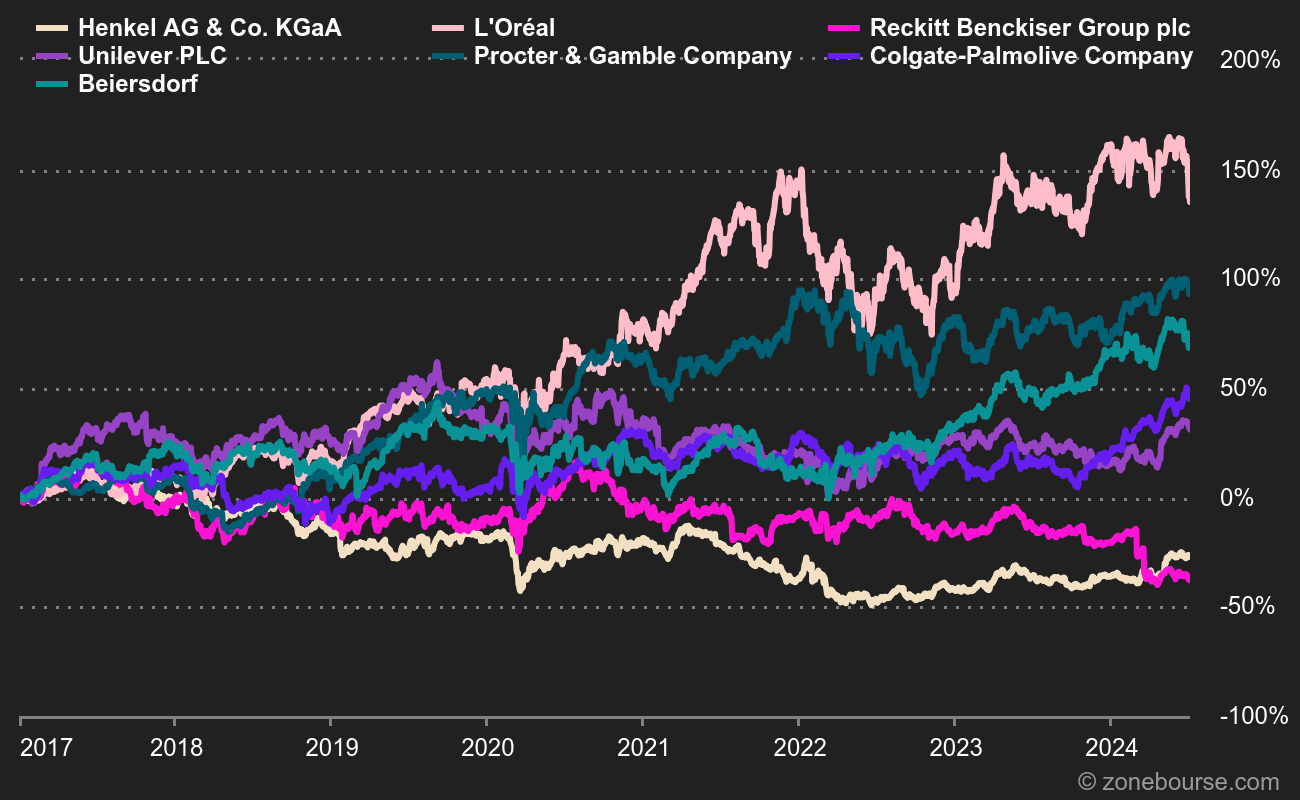The name Henkel is quite well known in the corporate world. It is also used by the general public thanks to the efforts made by the Düsseldorf group to unify under a single banner the well-known brands of its portfolio: Le Chat, Persil, Schwarzkopf, Super Glue, Décolor Stop, Pattex, Mir, etc. . By mixing all this together we get part of the recipe for gloubi-boulga (if you were born after 1980, don’t try to understand, please), which has absolutely nothing to do with the subject at hand today. hui.
The official nomenclature classifies Henkel in the great family of chemists, more precisely among specialty chemists. But analysts prefer to classify it in the category “HPC”, the Anglo-Saxon initials for “care of the house and of the person”. In fact, the activity is divided into three. The Glue & Adhesives branch (45% of revenues, part of which is from the general public and the other from industry and construction) is next to the Laundry & Cleaning Products division (35%) and Beauty (20%) . When it was founded in 1876, the company was best known for its detergents, before gradually opening up to new activities. Too much, no doubt, since it counted up to a thousand brands a dozen years ago, total reduced to 300 now, including 10 which generate more than 60% of revenues.
What is worth Henkel to appear in this column is not the proximity of the family to the Nazi regime at the time of the Third Reich (not to be confused with Heinkel planes). No, it’s rather the really bad stock market performance over the past five years. Roughly speaking, the company lost almost 40% of its value when the DAX took 40%.
Henkel vs DAX
The punishment is a little less heavy by integrating the coupon, but we remain far from the average. Especially if we look at a sample of other players in the sector over the same time step. It is undoubtedly a little excessive to include L’Oréal in comparables, but Procter & Gamble or Unilever are certainly to be put on the same level, they who have increased by around 25% over 5 years. The compatriot Beiersdorf is at + 12.5%. Even Reckitt is doing better, while the Briton is not a stock market lightning bolt.

Henkel vs comparables
Broken promises
The disenchantment with the market for Henkel stems from a succession of disappointments. No big quack though, but enough to look like an ugly duckling. The transformation plans launched in recent years have not completely convinced and the latest version, called “2020+”, struggles to deliver the promises. Lately, the company has managed to deliver higher than expected organic growth rates, but inflation in the cost of raw materials has eaten away at margins, leading to a painful downward revision of earnings targets. Even the Adhesives branch, which is supposed to have stronger pricing power, has suffered this scissor effect.
Another common criticism aimed at the group is the relatively small size of its personal care branch, compared to the giants of the sector. Henkel is eyeing external growth opportunities in this area, but they are very rare and / or very expensive. To make matters worse, the management, even if it has been renewed, does not have a very convincing history of acquisitions. And then there is the laundry market in the United States, which is a source of concern for many analysts who believe that failing to successfully wash their dirty laundry as a family, the group will have to find a more muscular solution to reverse the trend in this strategic market.
All this weighed heavily on the title, which also suffers, as we will have understood, from the comparison with its counterparts. Basically the record is not that bad, despite the recent downward revision in margin targets. No big weaknesses, but no big strengths either. Too normal perhaps for highly polarized investors, obsessed with the top of the class or looking for the pearl at a discount. Last thing: the magic of ESG scores gives a very high rating, “B +”, to a group that sells detergents in plastic packaging.
“Should not invite him” identifies rather qualitative companies that are going through a complicated patch on the stock market. You never know, they could get over it! The latest articles in the section:
